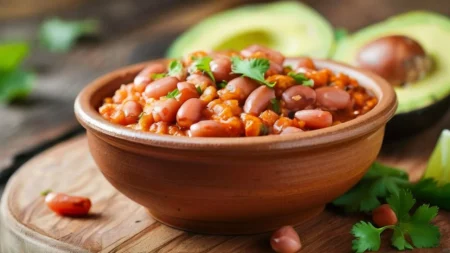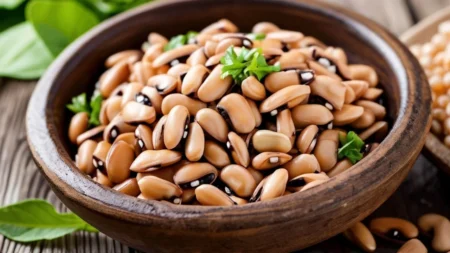Are you tired of struggling with stubborn weight, plateaus, or simply seeking to improve your overall well-being? This comprehensive article will explore advanced weight management techniques that can help you achieve sustainable weight loss and maintain a healthy lifestyle. By delving into strategic nutrition, optimized exercise routines, and lifestyle modifications, you’ll discover effective ways to reach your weight loss goals and enjoy lasting results.
Whether you’re battling with weight loss, striving for sustainable weight management, or simply aiming for a healthy lifestyle, this article will provide you with the tools and insights you need to take control of your health and wellness. From mastering fat loss and boosting your metabolism, to navigating calorie deficits and optimizing your nutrition and exercise routines, you’ll learn how to overcome the challenges and unlock the secrets to long-term success.
Prepare to embark on a transformative journey where you’ll not only shed those extra pounds but also cultivate a positive mindset and implement effective stress management strategies. Get ready to embrace a healthier, happier, and more vibrant you.
Key Takeaways
- Discover advanced weight management techniques for sustainable weight loss
- Learn how to optimize your nutrition, exercise routines, and lifestyle for better results
- Develop a positive mindset and effective stress management strategies
- Understand the importance of a balanced, nutrient-dense diet and calorie deficits
- Explore the benefits of high-intensity interval training (HIIT) and strength training
Mastering Mindful Eating Habits
In this section, you’ll explore the principles of mindful eating, a transformative approach that can help you develop a healthier relationship with food. By learning to listen to your body’s natural hunger cues and satiety signals, you’ll discover the art of intuitive eating. This profound shift in perspective empowers you to make more conscious choices about what and how much you consume, leading to sustainable weight management and a balanced, nutritious diet.
Intuitive Eating: Listening to Your Body’s Cues
Intuitive eating encourages you to tune in to your body’s innate wisdom, respecting your physical and emotional hunger signals. By learning to recognize the difference between physical hunger and emotional eating triggers, you can develop a more mindful approach to nourishing your body. This practice helps you cultivate a deeper understanding of your food psychology, enabling you to make more balanced, satisfying food choices.
Portion Control and Balanced Nutrition
Mastering portion control is a crucial aspect of mindful eating. By being attentive to serving sizes and practicing mindful consumption, you can enjoy the flavors and textures of your meals while maintaining a balanced diet. Incorporating a variety of nutrient-dense foods, such as fruits, vegetables, whole grains, lean proteins, and healthy fats, can support your overall health and weight management goals.
Overcoming Emotional and Binge Eating
One of the key challenges in mindful eating is addressing emotional eating and binge eating behaviors. By exploring the underlying triggers and developing coping strategies, you can learn to separate your emotions from your eating habits. Techniques such as stress management, self-care practices, and seeking support can empower you to break free from these patterns and maintain a healthier, more intuitive relationship with food.
Optimizing Your Exercise Routine
To unlock the full potential of your weight management journey, it’s essential to optimize your exercise routine. By incorporating a strategic blend of high-intensity interval training (HIIT) and strength training, you can effectively boost your metabolism, burn fat, and build lean muscle mass.
High-Intensity Interval Training (HIIT)
HIIT is a dynamic exercise approach that alternates periods of intense effort with brief recovery intervals. This type of training not only helps you burn calories efficiently during the workout but also continues to rev up your metabolism long after you’ve finished. By incorporating HIIT into your routine, you can expect to see improved fat-burning results and a heightened ability to reach your weight loss goals.
Strength Training for Metabolism Boost
Contrary to popular belief, strength training is not just for bodybuilders and power athletes. In fact, incorporating regular strength training into your exercise regimen can be a game-changer for your weight management efforts. By building and maintaining lean muscle mass, you’ll experience a boost in your metabolism, which can lead to more effective fat burning and muscle toning. Strength training not only helps you sculpt a toned physique but also supports your overall health and well-being.
To optimize your exercise routine for advanced weight management, it’s recommended to strike a balance between HIIT workouts and strength training. This comprehensive approach will help you unlock the full benefits of both exercise modalities, leading to a more efficient and sustainable weight loss journey.
| Exercise Routine | Benefits |
|---|---|
| High-Intensity Interval Training (HIIT) | Efficient fat burning Boosted metabolism Improved cardiovascular fitness |
| Strength Training | Increased lean muscle mass Enhanced metabolic rate Toned and sculpted physique |
Advanced Weight Management Techniques
Achieving sustainable weight loss requires a multifaceted approach, and in this section, we’ll delve into more advanced weight management techniques that can help you optimize your results. Two key areas we’ll explore are tracking macronutrients and maintaining a calorie deficit, as well as strategic meal planning and prepping.
Tracking Macronutrients and Calorie Deficits
Understanding the role of macronutrients (proteins, carbohydrates, and fats) is essential for advanced weight management. By closely monitoring your macronutrient intake, you can ensure that your diet is balanced and supportive of your weight loss goals. Additionally, creating a calorie deficit through a combination of dietary adjustments and increased physical activity is a proven strategy for effective and sustainable weight loss.
Meal Planning and Prepping Strategies
Meal planning and prepping are powerful tools in your weight loss optimization arsenal. By taking the time to plan your meals and prepare them in advance, you can ensure that you have access to nutritious, portion-controlled options throughout the week. This not only supports your calorie deficit and macronutrient balance but also reduces the temptation to make less healthy choices when you’re pressed for time.
Implementing advanced techniques like macronutrient tracking and meal planning can help you take your weight management to the next level. By understanding the intricate details of your nutritional intake and strategically planning your meals, you’ll be empowered to make informed decisions that contribute to your long-term weight loss success and overall health.
Lifestyle Modifications for Sustainable Change
Achieving sustainable weight loss is not just about the numbers on the scale; it’s about cultivating a holistic lifestyle that supports your overall well-being. In this section, we’ll explore the power of lifestyle changes, focusing on the development of a positive mindset, effective stress management and self-care practices, as well as the benefits of building a supportive network to help you stay motivated and accountable throughout your weight loss journey.
Developing a Positive Mindset
Your mindset plays a crucial role in your ability to achieve sustainable weight loss. By cultivating a positive and empowered outlook, you can overcome mental roadblocks, embrace challenges as opportunities for growth, and develop the resilience needed to maintain your weight loss goals over the long term. Techniques such as positive affirmations, visualization, and gratitude practices can help you reframe your relationship with food and your body, fostering a mindset that supports healthy lifestyle changes.
Stress Management and Self-Care Practices
Stress can be a significant obstacle to sustainable weight loss, as it can lead to emotional and binge eating, disrupt sleep patterns, and contribute to hormonal imbalances. By incorporating effective stress management strategies into your daily routine, such as meditation, yoga, or mindful breathing exercises, you can better regulate your stress levels and support your overall well-being. Additionally, prioritizing self-care practices, such as regular exercise, adequate sleep, and engaging in hobbies you enjoy, can help you maintain a positive mindset and a healthy lifestyle.
Building a Support System
Embarking on a weight loss journey can be challenging, and having a strong support system can make all the difference. Surrounding yourself with friends, family, or like-minded individuals who encourage and uplift you can help you stay motivated, accountable, and resilient in the face of setbacks. Joining a support group, either in-person or online, can also provide a sense of community and shared experiences, fostering the habit formation necessary for sustainable weight loss.
By embracing these lifestyle changes, you’ll cultivate the positive mindset, stress management tools, and supportive network needed to achieve your weight loss goals and maintain a healthy, sustainable lifestyle for years to come.
Conclusion
As you’ve discovered throughout this comprehensive article, the key to successful and sustainable weight management lies in adopting a holistic approach that encompasses strategic nutrition, optimized exercise routines, and impactful lifestyle modifications. By mastering the advanced techniques explored in this guide, you now have the knowledge and tools to embark on a transformative weight management journey that will lead to lasting results.
The weight management summary highlights the critical importance of developing mindful eating habits, leveraging the power of high-intensity interval training and strength training, and meticulously tracking your macronutrients and calorie intake. These key takeaways will empower you to create a personalized plan that aligns with your unique needs and preferences, setting you up for long-term success.
Remember, sustainable weight loss and a healthy lifestyle are not solely about the numbers on the scale; they encompass a holistic approach that nurtures your physical, mental, and emotional well-being. By incorporating these advanced weight management techniques into your daily routine and surrounding yourself with a supportive network, you’ll be well on your way to achieving your weight loss maintenance goals and transforming your overall health and wellness.
FAQ
What is the importance of tracking macronutrients and creating a calorie deficit for weight management?
Tracking your macronutrients (proteins, carbohydrates, and fats) and maintaining a sustainable calorie deficit are crucial advanced weight management techniques. By understanding the composition of your diet and creating a calorie deficit, you can optimize your body’s fat-burning mechanisms and achieve more effective and long-lasting weight loss.
How can meal planning and meal prepping strategies support my weight management goals?
Implementing meal planning and prepping strategies can greatly assist in your weight management journey. By planning and preparing your meals in advance, you can ensure you have access to balanced, nutrient-dense foods that align with your dietary needs. This can help you avoid impulsive or unhealthy food choices and maintain a consistent, calorie-controlled diet.
What are the benefits of incorporating high-intensity interval training (HIIT) and strength training into my exercise routine?
High-intensity interval training (HIIT) and strength training can be highly effective for advanced weight management. HIIT workouts can help you burn fat efficiently and boost your metabolism, while strength training can increase your muscle mass, further enhancing your body’s fat-burning capabilities and overall metabolic rate.
How can developing a positive mindset and implementing stress management techniques support my weight loss journey?
Cultivating a positive mindset and incorporating stress management practices are essential for sustainable weight management. A positive mindset can help you stay motivated, overcome challenges, and maintain a healthy relationship with food and your body. Effective stress management techniques, such as mindfulness, relaxation exercises, and self-care practices, can also support your weight loss efforts by reducing emotional and stress-related eating behaviors.
What is the importance of building a supportive network during my weight management journey?
Building a supportive network can greatly enhance your weight management journey. Surrounding yourself with individuals who encourage and celebrate your progress can help you stay motivated, accountable, and inspired to continue making healthy choices. Engaging with a community of like-minded individuals can also provide valuable insights, shared experiences, and a sense of camaraderie, further empowering you to achieve your weight loss goals.











